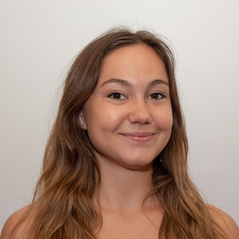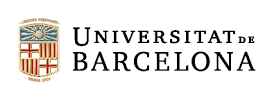ESR3: Varbina Ivanova
|
Vertical Divider
Host Organization
Barril Lab Computational Biology and Drug Design Group of Pharmacy University of Barcelona Supervisor Prof. Xavier Barril |
Allosteric modulators of Fbw7 E3 ligase E3 ubiquitin-ligases are classified as a superfamily of proteins with a key role in the ubiquitin-proteasome system (UPS) which is responsible for the degradation of 80% of the proteins in a human’s body. Fbw7, an E3 ligase, is known to target important oncoproteins for UPS degradation (cyclin-E, c-Myc, Notch Jun) and play an essential role in tumorigenesis. Despite Fbw7’s significance in cancer, no small molecules have been found to significantly modulate its function. Recent studies, carried out in our lab, have shown that the Fragment-based approach can be successfully implemented to identify suitable starting points for Fbw7 allosteric modulation. My Ph.D project is focused on the development of computational methods for the detection of potential allosteric binding sites, the elucidation of the binding modes of existing Fbw7 allosteric ligands and fragments using different experimental and computational methods, and the optimization of these molecules as chemical probes for the modulation of Fbw7.
The main objectives of the project, which would be followed, are: 1) Detecting allosteric binding sites and cryptic pockets in Fbw7. 2) Determining the binding sites and binding modes of existing Fbw7 ligands. 3) Improving potency and modulating allosteric response of ligands |
Brief Scientific Bio
In 2020, I graduated from Sofia University (Bulgaria) with a degree in Chemical engineering. During my studies, I joined the Computational Chemistry and Spectroscopy group at the Department of Pharmaceutical and Applied Organic Chemistry, where I did my Bachelor’s thesis project with a focus on using ab initio and DFT methods to study fluorescent DNA markers. Subsequently, I chose to pursue a Master’s degree in Computational Chemistry at Sofia University and I took part in an Erasmus+ traineeship program at the University of Barcelona (Spain). During the Erasmus internship, I developed my Master’s thesis project, in which I employed Ligand-field Molecular Mechanics and Molecular Dynamics methods to study SCO supramolecular structures. After I finished my Master’s degree in 2021, I did a research stay at the Computational Biology and Drug Design Group at the University of Barcelona, working on the investigation of the binding mechanism of Sphingosine kinase 1/2 inhibitors, under the supervision of Prof. Dr. Xavier Barril. In February 2022 I joined the group as an ESR in the ALLODD ITN project.
In 2020, I graduated from Sofia University (Bulgaria) with a degree in Chemical engineering. During my studies, I joined the Computational Chemistry and Spectroscopy group at the Department of Pharmaceutical and Applied Organic Chemistry, where I did my Bachelor’s thesis project with a focus on using ab initio and DFT methods to study fluorescent DNA markers. Subsequently, I chose to pursue a Master’s degree in Computational Chemistry at Sofia University and I took part in an Erasmus+ traineeship program at the University of Barcelona (Spain). During the Erasmus internship, I developed my Master’s thesis project, in which I employed Ligand-field Molecular Mechanics and Molecular Dynamics methods to study SCO supramolecular structures. After I finished my Master’s degree in 2021, I did a research stay at the Computational Biology and Drug Design Group at the University of Barcelona, working on the investigation of the binding mechanism of Sphingosine kinase 1/2 inhibitors, under the supervision of Prof. Dr. Xavier Barril. In February 2022 I joined the group as an ESR in the ALLODD ITN project.
|
This project has received funding from the European Union's Horizon 2020 research and innovation programme under the Marie Skłodowska-Curie grant agreement No 956314.
|





